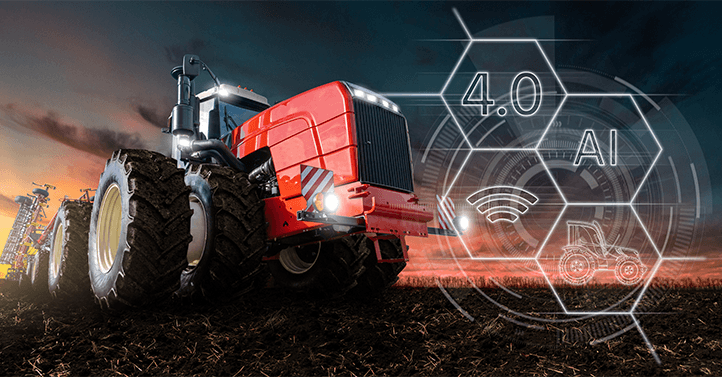Unlike that old nursery rhyme, the farmer may actually no longer be in the dell. Between an aging population — today’s farmers are 60 years old on average — and unprecedented labor shortages, a growing number of farmers are climbing off their John Deeres and calling it a day. As crops lie unharvested and agricultural products from the U.S. become increasingly uncompetitive globally, hopes are turning to autonomous tractors.
Running on Empty
“Farm-equipment OEMs are getting closer to attaining the once-impossible dream of producing tractors that are fully automated,” says David Tsui, a project manager in our Energy sector. “Hard as it is to imagine, driverless tractors are already here — but they currently require a human operator to remotely work the controls in order to keep the tractors from crashing into the cows.” The goal is to produce tractors that are both driverless and able to perform tasks without any human intervention, i.e., “smart” tractors. This will require equipment with sensors and cameras to relay data to onboard computers so the fields can be plowed while the aging farmers ease their creaky bones.
How Close Are We?
Back in 2017, John Deere indicated which way it was heading when it acquired Blue River Technology. Blue River specializes in computer vision and machine learning, which are key technologies for developing task-oriented autonomous equipment. In 2021, the company agreed to purchase Bear Flag Robotics, which develops autonomous driving technology for tractors. Its technology is compatible with existing equipment, allowing farmers to retrofit their tractors with autonomous systems.
In 2020, Kubota, a Japanese machinery maker, partnered with U.S. chipmaker Nvidia to develop autonomous farm tractors. These tractors will be equipped with Nvidia processing units and artificial intelligence, in addition to cameras, to instantly interpret and respond to collected data, including analyzing weather data and crop conditions. Case IH, Monarch Tractor, Autonomous Tractor Corporation, Fendt, and Precision Makers are also showing up on radar screens with regard to autonomous tractors.
What Do Autonomous Tractors Mean for Lubes?
For starters, there will no longer be any need for DIY or service-center oil changes. “Instead,” says Tsui, “these AI tractors can tell the OEM they need oil and either drive themselves in for servicing or alert a technician that they need to come out to the farm.”
With the OEM channel driving growth for lubricants, OEM genuine oils — and corporations offering contracts for servicing this equipment — will hit paydirt with autonomous tractors. Adds Tsui, “Electric versions of autonomous tractors will also see increased demand, as it will be easy to have them come back on their own and recharge, like your basic Roomba vacuum.”
For more insight on how HDMOs will be affected, subscribe to our just-published report, The HDMO Market in 2040: A Long-Term Outlook. Covering Asia-Pacific, North America, Europe, and Latin America, it provides a comprehensive independent appraisal of the evolving HDMO market in context of a rapid diversification of the powertrain mix of commercial fleets, particularly the electrification of commercial vehicles and hydrogen fuel cell vehicles alternatives. Other transformative forces including telematics and digitalization are also analyzed.
About this blog:
How Autonomous Tractors Will Help OEM Genuine Oil Hit Paydirt features insights from David Tsui, a Project Manager in Kline & Company’s Energy sector. David began his career at Kline in 2016, having spent the prior decade formulating finished lubricants. His projects at Kline have spanned the entire supply chain of finished lubricants and lubricant additives, ranging from synthetic lubricants to OEM genuine oil and global lubricant additives. David is currently focusing on general industrial oils and greases. He graduated from Rutgers Business School in New Jersey with a Bachelor of Science degree in chemistry.
Press inquiries:
Lance Debler
Content Marketing Manager
Kline & Company
+1-973-435-3425

